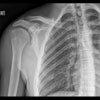
CHICAGO (Reuters), Sep 12 - A leading U.S. cardiologist called on Friday for a sweeping study to evaluate the risks of potentially fatal blood clots related to drug-eluting coronary stents.
Nearly 6 million heart patients worldwide have received a drug-eluting stent, but there has been a growing body of evidence that this newer generation of stents, compared with the bare metal variety, may cause blood clots to form long after implantation.
Late-stent thrombosis risks were the center of debate at a cardiology meeting earlier this week in Barcelona.
"This really shakes up the whole cardiology community," Dr. Stephen Nissen, head of cardiovascular medicine at the Cleveland Clinic, said in a telephone interview.
"No one has done the right kind of long-term study," he said, adding that patients should be followed for 3 or 4 years instead 9 months. "How else will we answer the question?"
Dr. Mark Ricciardi, director of interventional cardiology at the University of New Mexico Health Sciences Center, was supportive of such a study, saying drug-coated stents may have been embraced a bit too eagerly.
"If we haven't learned that we need to wait for long-term data, we should have learned it now," Ricciardi told Reuters.
Nissen said he hoped regulators would require a long-term study, adding it would be difficult without the support of companies that manufacture and market the devices.
They include Boston Scientific Corp. and Johnson & Johnson -- the only two currently approved to sell drug-eluting stents on the U.S. market. Medtronic Inc., Abbott Laboratories and Conor Medsystems Inc., have approvals in other countries.
Scott Ward, president of Medtronic's Vascular business, told Reuters that Medtronic is planning a large scale study with 5-year follow-up to evaluate the risks of its drug-eluting stent called Endeavor, approved in Europe. He said Medtronic will make a formal announcement later this year.
Ward defended the safety profile of Endeavor and discounted the notion that all drug-eluting stents have increased risk of clotting. "This idea that it's a class effect is difficult to support," Ward said.
On Thursday, Boston Scientific said an internal analysis confirmed an increase risk of blood clots with drug-coated stents but said it had seen no increased health risk.
Asked on Friday whether they would support the type of trial Nissen is proposing, J&J and Boston Scientific stood behind their existing data. Abbott had no immediate response.
Medtronic's Ward said the company has seen a modest increase in sales of tradition bare metal stents. "It's maybe a few percentage points over the last several months, but it's difficult to attribute to these recent events," Ward said.
Ricciardi said he has been using fewer drug-eluting stents in recent months.
About a year ago, 90 percent of all coronary stents used were the drug-eluting variety, Ricciardi said. Today, it's closer to 75 percent, with the balance being bare metal.
"Maybe the cardiology community embraced drug-eluting stents with too much enthusiasm when they were introduced a few years ago," he said.
"Today, there's more data that says (the incidence of blood clots) is a risk. The best thing for doctors to do is to tap on the brakes, not hit the accelerator," Ricciardi said. "I don't think this is the nail in the coffin for this technology, but it needs to be studied more. It's a great product for the right patient."
By Debra Sherman
Last Updated: 2006-09-11 15:11:18 -0400 (Reuters Health)
(Additional reporting by Julie Steenhuysen)
Related Reading
Drug-eluting stents perform best in small coronary lesions, September 6, 2006
Copyright © 2006 Reuters Limited. All rights reserved. Republication or redistribution of Reuters content, including by framing or similar means, is expressly prohibited without the prior written consent of Reuters. Reuters shall not be liable for any errors or delays in the content, or for any actions taken in reliance thereon. Reuters and the Reuters sphere logo are registered trademarks and trademarks of the Reuters group of companies around the world.
















